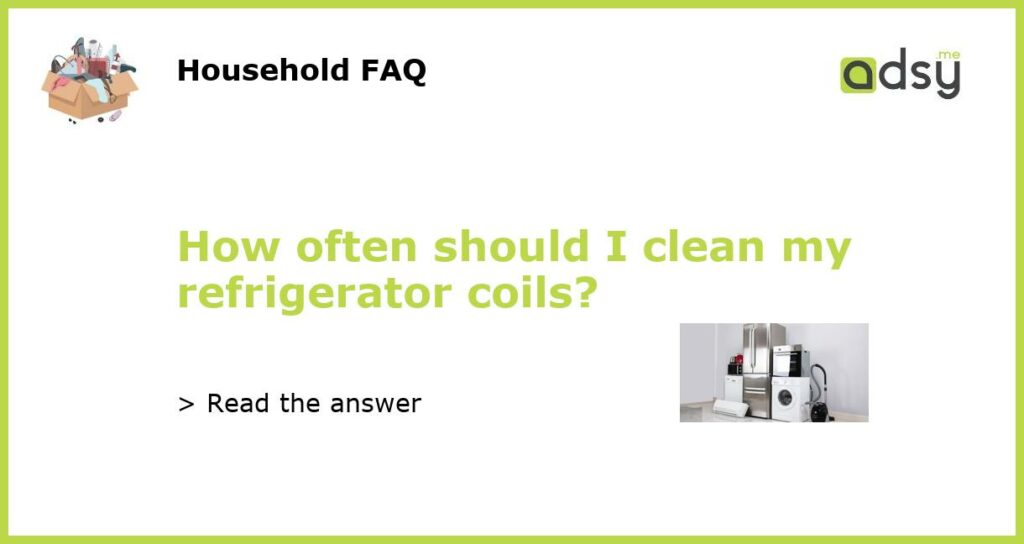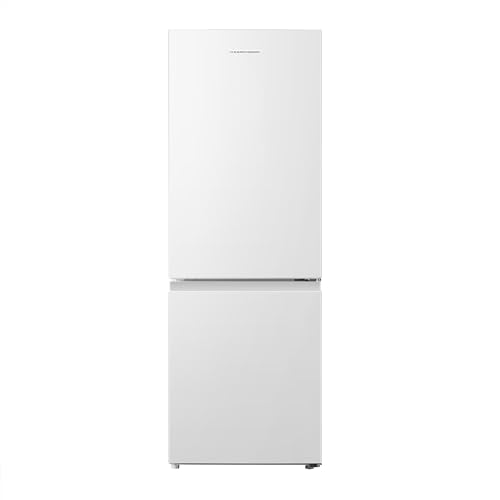Cleaning your refrigerator coils is an important maintenance task that can help prolong the life of your appliance and keep it running efficiently. Over time, dust, dirt, and pet hair can accumulate on the coils, causing them to become less effective at transferring heat and potentially leading to higher energy consumption. But how often should you clean your refrigerator coils? Let’s find out.
The importance of cleaning refrigerator coils
Cleaning your refrigerator coils is essential for maintaining the performance and efficiency of your appliance. The coils, located either on the back or underneath the unit, are responsible for releasing heat from the refrigerator’s compressor. When the coils are covered in dust and debris, they can’t efficiently transfer heat, causing the compressor to work harder and use more energy. Regularly cleaning the coils can help reduce energy consumption and also prevent potential breakdowns and costly repairs.
Factors that determine how often you should clean your refrigerator coils
The frequency at which you should clean your refrigerator coils depends on several factors. Firstly, consider the environment in which your refrigerator is located. If you live in a dusty or high-pollen area, the coils may accumulate dirt and debris at a faster rate. Additionally, if you have pets that shed fur, it’s important to clean the coils more frequently to prevent clogs. Another factor to consider is the age of your refrigerator. Older models may have coils that are more prone to dirt buildup and may require more frequent cleaning.
General guidelines for cleaning refrigerator coils
As a general rule, it is recommended to clean your refrigerator coils at least twice a year. However, there are a few steps you can take to determine if your coils need cleaning more often. Start by visually inspecting the coils. If you notice a significant amount of dust or debris, it’s time for a cleaning. You can also perform a quick test by touching the coils. If they feel warm to the touch, it’s an indication that they may be clogged and in need of cleaning. If you have pets or live in a dusty area, you may want to consider cleaning the coils every three to four months.
How to clean refrigerator coils
Cleaning your refrigerator coils is a relatively simple process that can be done in just a few steps. Start by unplugging the refrigerator or turning off the power at the circuit breaker. Locate the coils, which are typically located on the back of the refrigerator or underneath. Use a coil brush or a vacuum cleaner with a brush attachment to gently remove dust and debris from the coils. Be careful not to bend or damage the coils while cleaning. After cleaning the coils, you can use a soft cloth or vacuum to remove any remaining dirt or dust. Once you have finished cleaning, plug the refrigerator back in or turn the power back on.
Benefits of regularly cleaning your refrigerator coils
Regularly cleaning your refrigerator coils offers several benefits. Firstly, it helps improve the efficiency of your appliance, leading to lower energy consumption and potentially saving you money on your utility bills. Secondly, it helps prolong the life of your refrigerator by reducing the strain on the compressor. Lastly, cleaning your coils can help prevent breakdowns and expensive repairs, as dirt buildup on the coils can cause the compressor to overheat. By taking a few minutes every few months to clean your refrigerator coils, you can enjoy a more efficient and reliable appliance.
In conclusion, cleaning your refrigerator coils is an important maintenance task that should be done regularly to ensure optimal performance and efficiency. The frequency at which you should clean your coils depends on factors such as the environment and the age of your refrigerator. General guidelines suggest cleaning the coils at least twice a year, but pet owners or those living in dusty areas may need to clean them more frequently. Remember to follow proper cleaning procedures to avoid damaging the coils, and enjoy the benefits of a more efficient and reliable refrigerator.




![COMFEE' RCD93WH1(E) A Under Counter Fridge, 93L Fridge with Cooler Box, Interior Light, Removable Glass Shelf, Reversible Door Hinge, Adjustable Legs, White [Energy Class F]](https://m.media-amazon.com/images/I/51SGR0VK5ZL.jpg)

